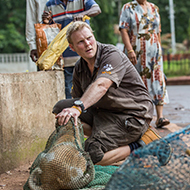
Mass vaccination programmes help to protect at-risk communities
Veterinary charity Mission Rabies has been strengthening its efforts to combat canine rabies during the pandemic, leading the fight against this neglected tropical disease (NTD) on a global scale.
With restaurants and cafes closed across the globe, there has been a surge in roaming dogs searching for food and fighting for territory.
Andy Gibson, research director for Mission Rabies said: “We’ve seen a spike in rabies cases in Goa, India because of the lockdown. Dogs moved between state borders, threatening to ravage rural communities in search of food.
“We had to deploy our teams to work through the pandemic, often at great personal risk, to protect the people, particularly the children in the affected areas.”
Mission Rabies' teams worked tirelessly across the pandemic, managing to vaccinate more than 81,000 dogs across the state of Goa.
Similarly, the lockdowns being enforced across Africa have dramatically increased the risk of being bitten by a rabid dog. In the southeastern country of Malawi, rabies kills a child every day.
In 2020, the Mission Rabies team deployed in southern Malawi took part in an annual mass vaccination campaign to protect at-risk communities. Over a two month period, the team was able to vaccinate more than 100,000 dogs.
Founder and CEO Dr Luke Gamble explained: “We’ve reduced the incidence of human rabies deaths across all our project sites. We’re protecting dogs and we’re protecting children. It’s a win-win.”
Currently, the charity is carrying out a rapid response mass vaccination programme in Tanzania, where an estimated 1,500 people die from rabies every year.
Working alongside other international volunteers, the charity will vaccinate more than 7,000 dogs in ten days to protect a community from rabies.
Mission Rabies is a partner of World NTD day, which takes place on 30 January. It recognises the hard work and progress made to tackle NTDs across several countries and sectors.
Image (c) Mission Rabies.



 The latest
The latest